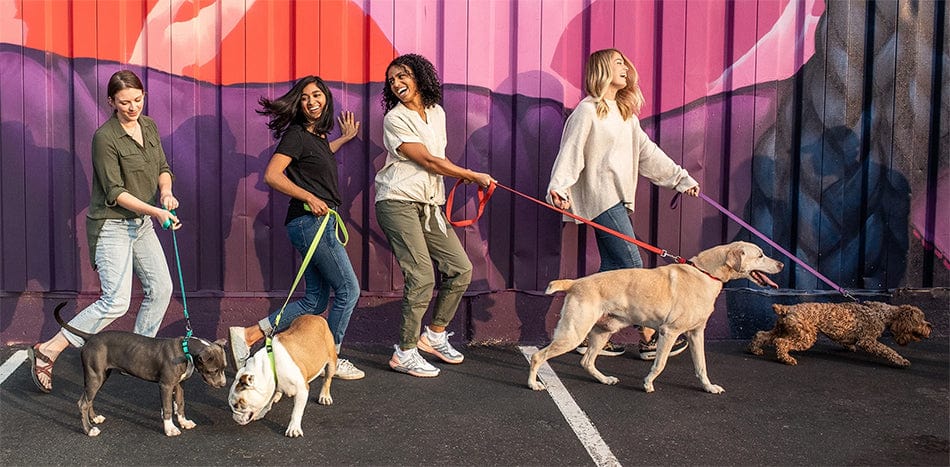Your cart is empty. Let's fix that!


This post is written by our partner, Kelly Bove. Follow her and her pups on Instagram @Kelly_Bove.
First things first....Dog training knows no age limits. You can train your 8-week-old puppy or 8-year-old dog despite what some people may think, you CAN teach an old dog new tricks).
Each and every dog is different. Some pups are highly treat motivated while others may need something a liiiittle more yummy to get their interest. For dogs who are crazy about food,I like to use their kibble as a reward. Kibble may not work for all dogs, though. For dogs who need a higher value treat to keep them interested I like to use “I and love and you” Nice Jerky! I'll break up the jerky into about four small pieces before diving into training mode. For the pickier dogs out there who turn their nose up at dog kibble or treats, you can take it one step further and cut up some string cheese or even hot dogs.
Keep training sessions short, especially when you're just starting out. Training, dogs who are new to learning can make them mentally stimulated fast. You'll be surprised at how tired your pup is after a good training session—exercising their brains is hard work! In the beginning, count out a certain amount of treats (or kibble!) and then call it quits when the treats run out. You can do a small session early in the day and another one before bed (To give you an idea...5 minutes a day Monday-Friday is better than 30 minutes on Saturday).
Dogs start to consistently do things after a lot of repetition. Let's say your dog steals food off the counter, for example. Once your pup learns he can score some yummy food within paws reach, he will likely do it again and again. When you have a dog that likes to counter surf, each time he succeeds, he is self-reinforcing the bad behavior (with your help if you keep leaving food within reach ;) ). The best way to prevent this from happening is to is teach your dog to "Leave it" and not take something unless given permission. Once your dog becomes a master at "Leave it" (when you say “leave it” and your pup stops dead in his tracks) you can even work toward an auto-leave where your pup won't even consider taking something that falls unless you give them the ok.
Training should ALWAYS be fun! Stay upbeat, happy, and praise your dog! They feed off of your energy...so if you're not happy and having fun, they likely won't be either. Remember that everyone has off days (our pups included!) AND every dog is different. What works for one dog may not work for another and that is perfectly ok! Remember that dog training is a journey—you should stop and celebrate their achievements, no matter how small they are. :)
Determination today leads to success tomorrow ⭐️ Never give up! And always, always remember that the most important part of training is to have fun.
This post is written by our friend and influencer, @Kelly_Bove.